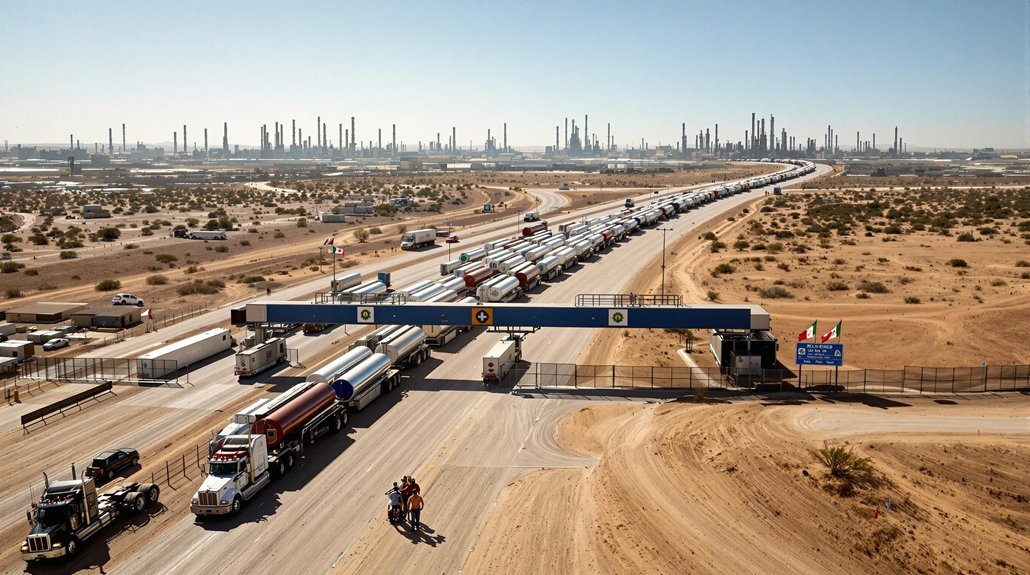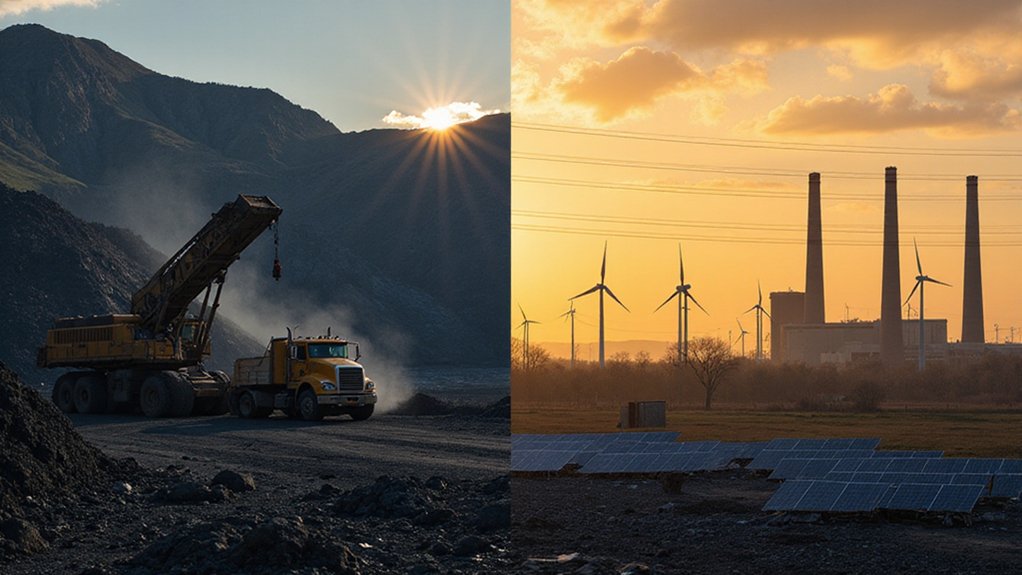Mexico has closed its border to U.S. fuel trucks entering from Texas. The government aims to stop fuel smuggling and tax evasion through this action, which has lasted over two weeks. Daily shipments of about 470,000 barrels of gasoline and 237,000 barrels of diesel have been disrupted. Mexican gas stations may face supply shortages, while businesses scramble to adjust their delivery plans. The economic impact on both sides of the border continues to grow.
Mexico has halted U.S. fuel imports by truck at the Texas border in a major crackdown on illegal trade. The Mexican government suspended land shipments of gasoline and diesel as authorities increase permit reviews and inspections. This enforcement action has stopped fuel trucks from crossing for at least two weeks as of April 2025, with no clear timeline for when deliveries might resume.
The crackdown aims to combat fuel smuggling and tax evasion at the border. Mexican officials are concerned about how illegal fuel trade is disrupting regional markets. Recent enforcement has already yielded results, with authorities seizing a vessel containing 10 million liters of diesel and nearly 200 containers and vehicles in Tamaulipas state.
This shutdown affects a significant trade relationship. Mexico is the largest buyer of U.S. petroleum products, importing 1.15 million barrels daily as of January. Of those imports, trucks carried 470,000 barrels of gasoline and 237,000 barrels of diesel each day across the land border. The halt creates potential supply bottlenecks and could raise costs for Mexican gas stations and transporters.
Not all fuel imports are affected. Most Mexican fuel arrives by ship, and rail deliveries continue without disruption. These alternative shipping methods may become more important if the truck restrictions continue long-term. Some businesses are already considering shifting to rail or maritime shipping to maintain their supply chains. The situation highlights how border security measures are increasingly focusing on economic crimes alongside immigration enforcement. The ban comes at a time when the Trump administration’s America First energy approach potentially raises costs for cross-border energy transactions.
U.S. fuel suppliers are feeling the impact too, with some distributors reporting sharp drops in customer demand. The backup of fuel supplies in the U.S. could create temporary oversupply issues. The Sheinbaum administration is particularly focused on policing fuel importers for tax compliance violations. Beyond energy, the disruption affects transportation and manufacturing sectors that rely on cross-border trade.
Mexican state oil company Pemex is working with authorities to fight illegal fuel trafficking. The crackdown aligns with broader U.S. and Mexican efforts to improve border security and reduce smuggling. However, the extended shutdown could force lasting changes to how fuel moves between the two countries.









